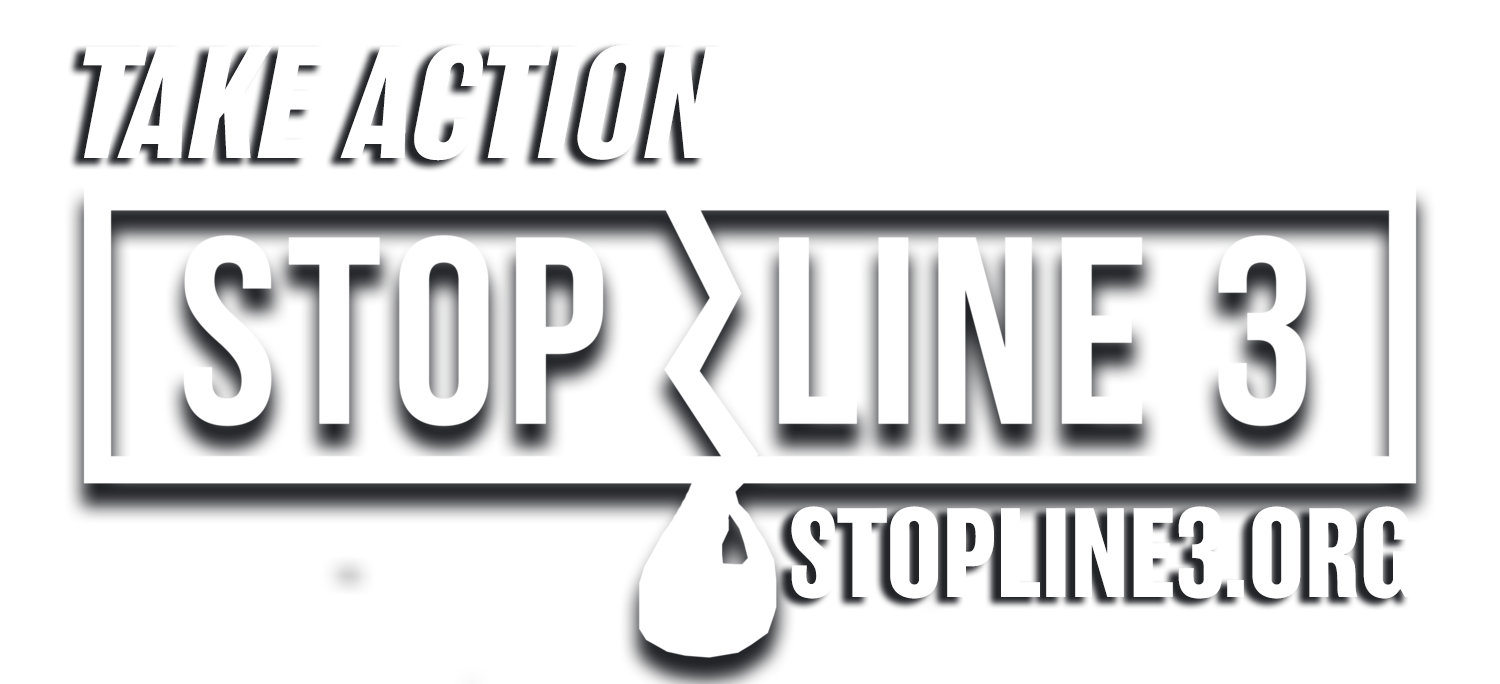Photo by Joe Brusky
On Wednesday, July 12, the last of the 5 directly impacted Ojibwe tribes was given full status as an intervening party in the State of Minnesota’s contested case permit process for Enbridge’s proposed Line 3 oil pipeline. The administrative law judge for the case granted the Leech Lake Band of Ojibwe’s petition to intervene during the case’s fifth prehearing conference. Leech Lake now joins the White Earth, Mille Lacs, Fond du Lac, and Red Lake Bands of Ojibwe as intervening parties in the case, along with a long list of environmental groups and Enbridge partners, two farmers who live along the route, and a group of 13 young people known as the “Youth Climate Intervenors.”
For several years now, the only parties intervening in Minnesota in opposition to Enbridge’s pipelines (Sandpiper and Line 3) have been a few environmental groups and two tribal governments (White Earth and Mille Lacs). No tribal governments intervened in Minnesota’s permit process for the expansion of the Alberta Clipper pipeline in 2013. Now, as awareness of pipelines and spill risk skyrockets, and resistance sparked by Standing Rock builds, more and more people are asking for the full rights of a stakeholder in the Line 3 decision, and tribal governments are taking a more proactive approach to protecting natural resources on ceded territories, where enrolled members retain constitutionally protected rights to hunt, fish, gather, travel, hold ceremony, and make a modest living off the land.
Current intervening parties for Line 3 include: White Earth Band of Ojibwe, Mille Lacs Band of Ojibwe, Fond du Lac Band of Lake Superior Chippewa, Red Lake Band of Ojibwe, Leech Lake Band of Ojibwe, Honor the Earth, Sierra Club, Friends of the Headwaters, Youth Climate Intervenors, and landowners Donovan & Anna Dyrdal. Additional parties are intervening in support of Enbridge - Kennecott Exploration Company, Laborer’s District Council, United Association of Pipefitters, the MN Chamber of Commerce, and a group of Canadian Oil Producers (Enbridge's customers, aka the "Shippers").
A decision from Judge O’Reilly to grant or deny 4 outstanding petitions is expected soon: Northern Water Alliance, a coalition of northern landowner groups and lake associations; Dawn Goodwin, a White Earth tribal member and traditional harvester; Susan Kedzie, an organic farmer and ecologist from Bemidji; and Willis Mattison, a former Minnesota Pollution Control Agency Regional Director.
Intervening parties have a number of rights and responsibilities in the State’s process that the general public doesn’t have. For example, they may submit oral and written testimony, call expert witnesses to the stand during the evidentiary hearings, cross-examine other parties’ witnesses, request information from other parties (including Enbridge) via discovery during trial preparation, file motions requesting changes to the process, etc. In exchange, they are required to attend hearings and be available to answer questions, fulfill discovery requests from other parties, conduct themselves in front of the judge with formal professionalism, and navigate complex procedural rules that only a small number of specialist attorneys are familiar with.
The public comment period for the state’s Draft Environmental Impact Statement (EIS) just ended on July 10th, and the MN Department of Commerce (DOC) is now reading and responding to each of the 3000+ comments, and will make changes as necessary to produce a final EIS. The evidentiary hearings are scheduled for this fall. A final permit decision from the Public Utilities Commission is expected in spring 2018.

